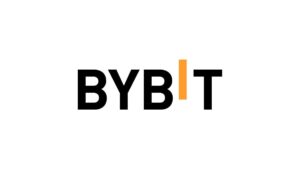US House will vote on FIT21 Bill before the holiday weekend

This week, the United States House of Representatives is set to vote on the Financial Innovation and Technology for the 21st Century (FIT21) Act, a significant piece of legislation aimed at defining the regulatory roles of the U.S. Commodity Futures Trading Commission (CFTC) and the Securities and Exchange Commission (SEC) in overseeing digital assets.
Announced by Republican members of the House Financial Services Committee via a May 20 social media post, this vote could pave the way for the bill to potentially become law.
Legislative Progress and Current Status
The FIT21 Act has been somewhat stagnant since its passage from the House Financial Services Committee in July 2023. However, recent developments saw Patrick McHenry, Chair of the Committee, indicating that the House Committee on Rules might soon position the bill for a vote in the full chamber.
Support for the FIT21 Act spans several quarters, including industry advocates and a bipartisan group of House members. It is one of the few crypto-focused legislative efforts to advance in Congress during this session. In addition to this legislative activity, President Joe Biden may soon decide the fate of a joint resolution passed in May that seeks to overturn an SEC rule concerning the management of digital assets by banks.
Endorsements for the bill have come from various crypto advocacy groups such as the Blockchain Association and the Crypto Council for Innovation. These groups have emphasized the necessity for the United States to adopt “pro-innovation and pro-consumer guardrails.” Despite these endorsements, it remains uncertain if the bill will secure the majority needed to pass. While the Republicans hold a slight majority in the House, the resolution to annul the SEC’s accounting rule saw bipartisan support with 21 Democrats siding with the Republicans on May 8.
Political Implications
Sheila Warren, CEO of the Crypto Council for Innovation, has expressed that although the FIT21 is not flawless, it represents an essential and historic effort to establish a federal regulatory framework for digital assets in the U.S.
The upcoming vote is not just about regulatory details; it also carries political implications, especially as the 2024 U.S. elections heat up. Many state primaries have already begun, and lawmakers, including Senator Elizabeth Warren, are clarifying their stances on digital asset regulation and oversight in the run-up to Election Day. Representative McHenry, a significant figure in the bill’s journey, is also poised to vote although he has announced that he will not seek reelection in November.
Source: GOP House Financial Services Committee
Importance of FIT21
The Financial Innovation and Technology for the 21st Century (FIT21) Act is a comprehensive legislative proposal aimed at creating a clear regulatory framework for digital assets in the United States. The primary goal of FIT21 is to delineate the roles and responsibilities of the U.S. Commodity Futures Trading Commission (CFTC) and the Securities and Exchange Commission (SEC) in regulating digital assets.
Under the FIT21 Act, the CFTC would be given jurisdiction over digital commodities, while the SEC would oversee digital securities. This division of responsibilities is intended to provide clarity and reduce regulatory uncertainty for companies operating in the digital asset space. The bill aims to foster innovation by creating a more predictable regulatory environment, which proponents argue will attract investment and growth in the U.S. digital asset market.
Key provisions of the FIT21 Act include the establishment of clear definitions for digital assets, the creation of regulatory pathways for token offerings, and the implementation of consumer protection measures. The legislation also seeks to promote transparency by requiring digital asset issuers to provide detailed disclosures to investors, akin to the requirements for traditional securities. The FIT21 Act represents a significant step towards integrating digital assets into the broader financial regulatory framework of the United States. By providing a structured approach to regulation, the bill aims to balance the need for innovation with the imperative of protecting consumers and maintaining market integrity.
Source link
#House #Vote #FIT21 #Bill #Ahead #Holiday #Weekend






